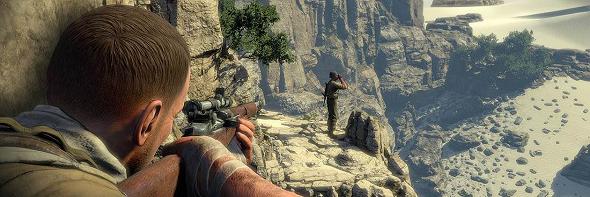
Claim: A U.S. sniper, asked what he feels when he shoots an al-Qaeda member, replied: "Recoil."
Example: [Collected on the Internet, 2006]
While interviewing an anonymous US Special Forces soldier on his sniper skills, a Reuters News agent asked the soldier what he felt when shooting members of
On December 9, 2005, CNN covered an interview of a
Katie Couric, while interviewing a Marine sniper, asked: "What do you feel when you shoot a terrorist?"
The Marine shrugged and replied: "Recoil."
Origins: We like our heroes larger than life, as this anecdote shows.
This account of a sniper's clever response to an interviewer began arriving in the snopes.com inbox on
(CNN, Reuters,
The shorter example is the earlier of the two versions of the "Recoil" anecdote; the longer a reworking of the more compact original undertaken to express points its rewriter wanted to make. The second version adds a negative view of the media that was missing from the original: the Reuters reporter is characterized as "trying to milk the interview for all it was worth," he addresses the soldier (the story's lantern-jawed hero) "in a less than respectful tone," poses the question he does "in an effort to make [the soldier] feel guilty," and refers to a member of
Many who have served in the
hats" worn by infantry soldiers, usually in the form of "All I feel when I kill
Another of our Vietnam War correspondents told us about a similar comment that was also in circulation at that time:
The other, similar comment was a response to the "hippy" question, "How can you shoot women and children?" Answer: "They don't run as
The "recoil" anecdote presents the soldier (and thus by implication all U.S. soldiers) as an emotionless specialist who regards killing members of the enemy's forces as just part of the job, nothing more. When asked what he feels while taking a life, he answers not about any emotional response to killing another human being, but about his physical reality — that after squeezing off a shot he has to deal with the gun's recoil. Within the framework of the tale, U.S. soldiers are depicted as many would like to think of them: cool-headed capable professionals who will ultimately overcome the enemy no matter what obstacles now stand in their way, because that is what they've been trained to do and what they are very good at. The narrative thus delivers a measure of comfort, in that all feel reassured of their own safety, knowing they are defended by fighting men like these.
Whatever may be the truth about the emotional makeup of the average soldier, those who become snipers are very carefully chosen, not only for their marksmanship but for their emotional stability and outlook as well. "We need the kind of soldier who can turn the remorse button off," said
Barbara "ghille suited" Mikkelson
Last updated: 11 March 2015
Sources: |
Farrell, Jim. "Snipers See Eyes of Men They Kill." Edmonton Journal. 31 December 2005 (p. A3).
